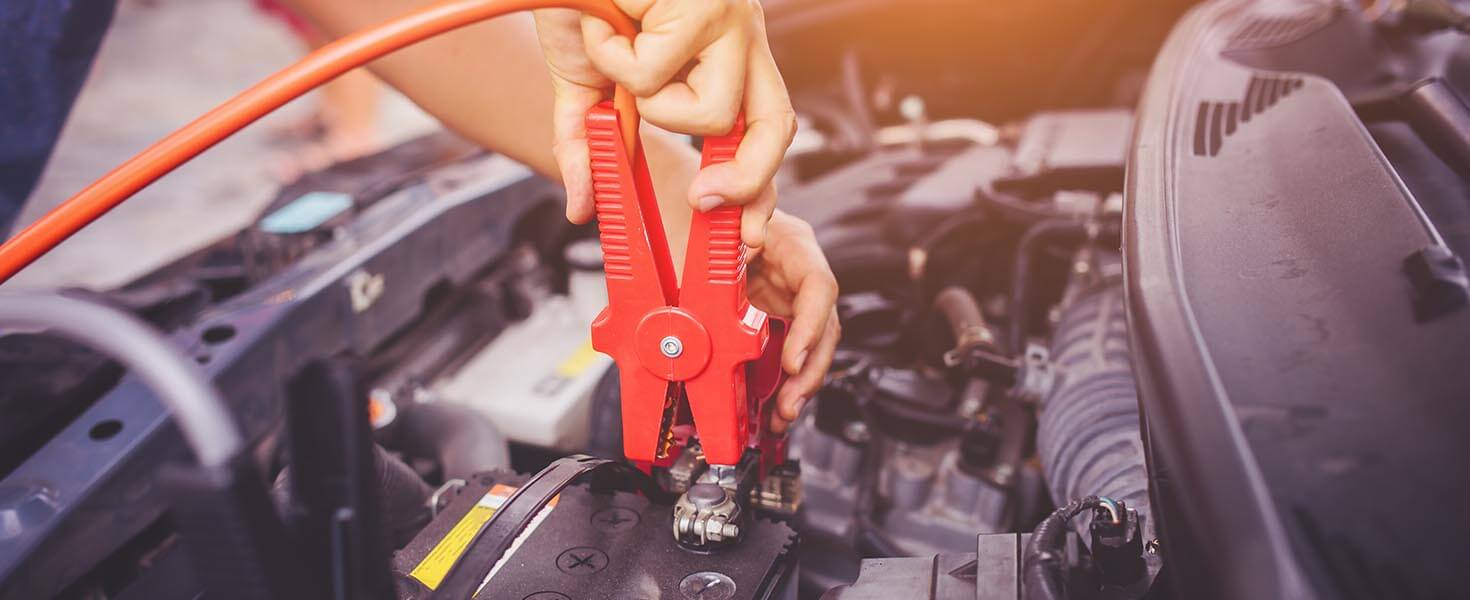Five Signs Your Car Battery May Be Dying
INDICATIONS YOU NEED TO PREPARE FOR A NEW BATTERY OR A JUMP START

We have come to rely on our cars like air and water. We expect them to start every time we turn the key, to power through the most extreme weather conditions, and to get us to our destinations on time. But a failing car battery can quickly turn a reliable vehicle into a major inconvenience.
As you enter the new year, heed the following five warning signs that can often predict when your battery may need immediate attention:
1. Slow engine crank
While starting your vehicle, you may notice that the cranking of the engine is sluggish and that your car takes longer to start than usual. You may also hear a clicking sound as your engine struggles to turn over.
2. Dashboard warning light
If the dreaded “check engine” or “check battery” light turns on, your battery power may be waning.

3. Swollen battery case/corrosion
Hot temperatures can often cause your battery to become bloated, ultimately leading to decreased battery life. Also, if you see any corrosion—a chalky residue built up around the terminals—your battery needs to be cleaned off and may need to be replaced.
4. Low battery fluid
A visual inspection of the translucent casing of your car’s battery can allow you to keep an eye on your battery fluid level. If the level drops below the lead plates, you may experience challenges with your battery’s power.
5. Old Age
Batteries more than three years old can often be operating on borrowed time, so annual inspections beginning at the three-year mark are encouraged.
Be sure to pay close attention to your battery when the temperature drops below freezing, rises above 90°F, and when you haven’t started your car in more than two weeks. These three conditions increase the risk of your battery losing its power.
This content is for informational purposes only. AAA does not guarantee any particular outcome.
